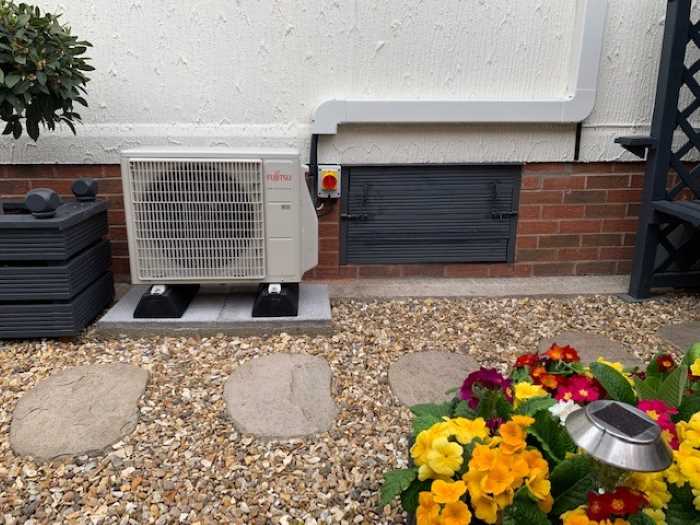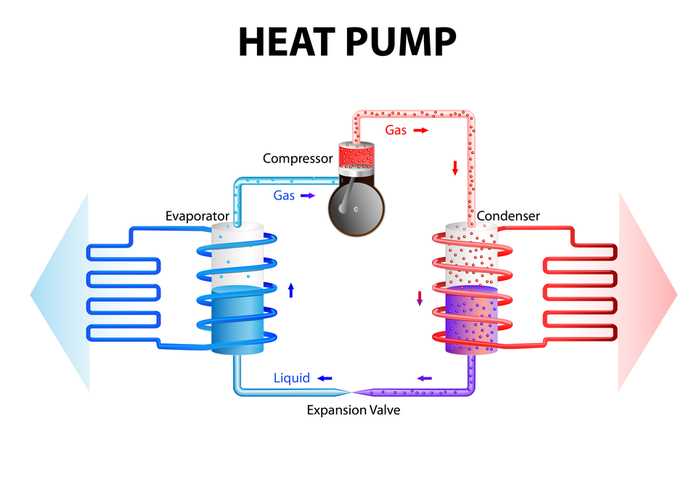In the broadest sense of the term, a heat pump is an energy efficient, low carbon alternative to traditional heating systems. Instead of relying on natural resources like coal, gas and oil, heat pumps use the principles of thermal energy transfer to pump warmth from an external source into a property.
There are two types of heat pump systems commonly used in both commercial and domestic settings - geothermal, or ground source heat pumps, and air source heat pumps. Whilst the former uses a system of underground pipework to extract heat from the earth, the latter draws warmth from the ambient air outside. It’s these air source heat pump systems that we’ll focus on in this article.

Commonly referred to as ASHPs, air source heat pumps in themselves come in two main forms - air to water, and air to air:
Air to water heat pumps - these are essentially a replacement for your boiler. They take heat from the outside air and distribute it through your central heating system in the form of hot water for radiators, underfloor heating, taps and showers.
Air to air heat pumps - these are used for space heating and, as the name suggests, they heat a property by moving air through a circulation system.
Although they require electricity to operate, the energy used by air source heat pumps is significantly less than the heat they produce. This is what is known as their Coefficient of Performance (COP).
For example, if an air source heat pump has a COP of 3, for every single kWh of electricity used to power the system, 3 kWh of heat is generated. This input/output ratio changes depending on the outdoor temperature, which is why a heat pump's efficiency is given as a Seasonal Coefficient of Performance (SCOP). This accounts for seasonal fluctuations, providing a more reliable indication of a system’s year round performance.
The average SCOP of an air source heat pump sits around 3.2 to 3.5, making them a highly efficient way to heat your home. They also lower your carbon footprint by reducing your reliance on fossil fuels. And since these systems can work in outdoor temperatures down to around -15℃, they’re ideal for the UK’s relatively mild winter climate.

A heat pump uses the same process as a refrigerator does, just in reverse. An external unit draws in outside air, which is blown over coils containing refrigerant liquid. This liquid absorbs the heat from the air, and as it does so it evaporates into a gas.
The gas then passes through a compressor. This increases the pressure of the gas, subsequently causing a rise in its temperature. It then passes through a heat exchanger, where it transfers heat to the surrounding cool air or water, depending on the system. This hot air or water circulates around your home, providing you with heating, whilst the refrigerant gas is condensed back into its liquid state, and the cycle starts all over again.
Most modern air conditioning systems are actually air to air heat pumps, providing year round temperature control. Whilst the process outlined above keeps you warm in winter, come the summer months it can simply be reversed to circulate cooled air throughout your property.
An increasing number of manufacturers, like Daiken for example, have also introduced air to water heat pumps that are compatible with reversible indoor units, so you can benefit from energy efficient central heating, hot water, and air conditioning with a single system upgrade.
If you’re considering a switch to an air source heat pump, there’s a lot of things you need to factor in, such as the size and layout of your property, how well insulated it is, and the outdoor space you have for the external unit. At Loughborough Air Conditioning, our experienced engineers are happy to advise on equipment, design and application to help you make an informed decision on your investment.
